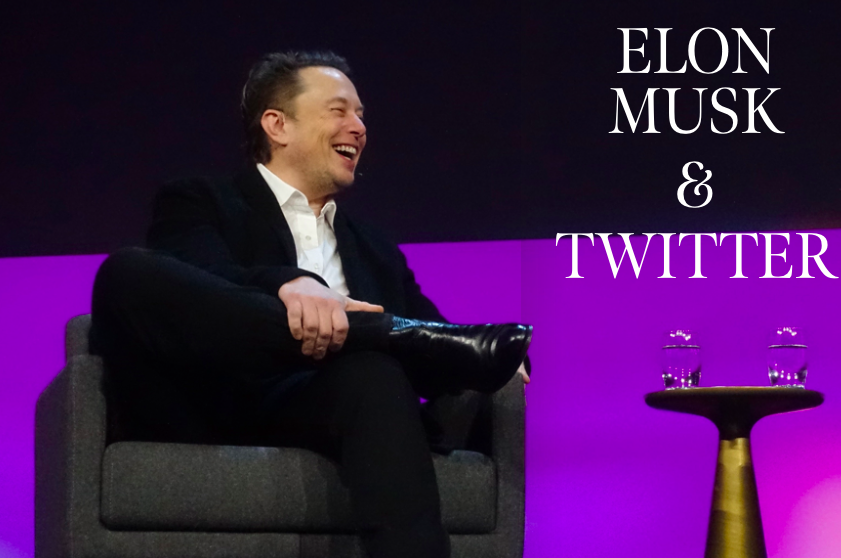Elon Musk’s Growing Influence: Controversies, Political Statements, and Global Implications
Elon Musk, one of the world’s wealthiest individuals and the CEO of Tesla, SpaceX, and the social media platform X (formerly Twitter), has become a polarizing figure in global politics. His recent statements and actions have drawn significant scrutiny, particularly regarding their influence on public discourse and political outcomes. Critics and supporters alike are debating Musk’s role in shaping political narratives and whether his public statements cross the line into undue interference.
Unfounded Allegations Against UK Prime Minister Keir Starmer
In December 2024, Musk made unsubstantiated claims about British Prime Minister Keir Starmer, alleging that Starmer concealed cases of child exploitation involving grooming gangs during his tenure as Director of Public Prosecutions (DPP) from 2008 to 2013. Musk’s posts on X accused Starmer of being complicit in what he termed the “Rape of Britain,” calling for his resignation and prosecution.
Contrary to Musk’s assertions, Starmer implemented reforms to address child exploitation during his time as DPP. He was responsible for initiating the first successful prosecution against an Asian grooming gang and established new protocols within the Crown Prosecution Service to ensure stricter handling of such cases.
Starmer condemned Musk’s remarks, stating, “Once we lose the anchor that truth matters in the robust debate that we must have, then we are on a very slippery slope.” Analysts have noted that Musk’s remarks, amplified through his platform, reached millions, sparking debates about the accountability of influential figures who make public allegations without evidence.
Targeting Labour Minister Jess Phillips
Musk’s comments have also focused on Jess Phillips, the UK Labour government’s Minister for Safeguarding and Violence Against Women and Girls. He described Phillips as a “rape genocide apologist” due to her opposition to a national inquiry into child sexual exploitation in Oldham. Phillips has instead advocated for local investigations to address the issue directly at its source.
Women’s rights groups have raised concerns about the safety risks associated with Musk’s public labeling of Phillips, who has long been a vocal advocate for safeguarding women and children. Critics argue that such rhetoric can incite online harassment and even physical threats, a concern echoed by public safety advocates.
Musk’s Support for Far-Right Movements Worldwide
Beyond the UK, Musk’s political involvement has extended to other nations, where he has openly expressed support for far-right parties and figures:
- Germany: Musk endorsed Alternative for Germany (AfD), a far-right political party with reported ties to neo-Nazi organizations. Musk referred to the AfD as the “last spark of hope” for Germany in an op-ed and plans to host a public discussion on X with AfD leader Alice Weidel. Critics worry that such endorsements lend credibility to extreme political ideologies.
- Italy: Musk has praised Prime Minister Giorgia Meloni, whose government has implemented strict anti-immigration policies. Musk publicly criticized the Italian judiciary for curbing some of Meloni’s measures and has attended events organized by her political party.
- United States: Musk maintains a strong relationship with former President Donald Trump and has supported the far-right activist Nigel Farage. He has reportedly pledged £100 million ($127 million) to Farage’s Reform UK party, which campaigns for tighter immigration controls.
- Misinformation and Anti-Immigrant Riots: In mid-2024, misinformation on X fueled anti-immigrant riots in Britain following a stabbing incident. Despite over 30 arrests related to the riots, Musk criticized the UK government’s actions, calling them an attack on free speech.
Musk’s Platform and Financial Clout
Musk’s influence is amplified by his ownership of X, which boasts 619 million monthly active users as of December 2024. Reports indicate that Musk has adjusted the platform’s algorithm to prioritize his posts, enabling his opinions to reach an estimated audience of 210 million users regularly.
In addition to his social media presence, Musk wields significant financial power. He has donated large sums to political campaigns, including $250 million to support Donald Trump’s reelection. Experts argue that this combination of wealth and platform ownership allows Musk to shape public discourse in ways unprecedented for an individual, raising questions about the boundaries of corporate influence in politics.
Concerns Over Influence and Accountability
Musk’s growing influence has prompted concerns among political analysts and global leaders. A representative of Germany’s Social Democratic Party recently questioned whether Musk’s statements and actions might align with the interests of certain political groups, such as the incoming Trump administration.
Critics highlight the risks of allowing influential figures to spread misinformation or engage in divisive rhetoric. Proponents of Musk argue that his actions reflect a commitment to free speech and transparency, while detractors warn that unchecked influence could destabilize democratic systems.
Related: What is the Department of Government Efficiency and Is It Austerity in Disguise?
Related: Tesla Faces Sales Challenges Amid Elon Musk’s Controversial Public Image
Balancing Freedom of Speech and Responsibility
As the owner of a global social media platform and a key figure in multiple industries, Musk occupies a unique position in modern society. His actions and statements have reignited debates about the responsibilities of public figures in maintaining truthful and constructive dialogue.
Governments worldwide are grappling with how to address the potential consequences of Musk’s influence. From stricter content moderation policies to calls for regulation of social media platforms, solutions remain divisive and challenging to implement.
Musk’s political commentary highlights the complex intersection of wealth, influence, and responsibility in the digital age. While his supporters praise his willingness to challenge established norms, critics argue that his actions have the potential to undermine trust in public institutions and exacerbate societal divisions.
As governments and organizations navigate the implications of Musk’s growing role in global politics, the broader conversation about the accountability of influential individuals in shaping public discourse continues to evolve. Whether Musk’s interventions are viewed as a defense of free speech or as a destabilizing force, his actions underscore the challenges of balancing influence and responsibility in an increasingly interconnected world.














